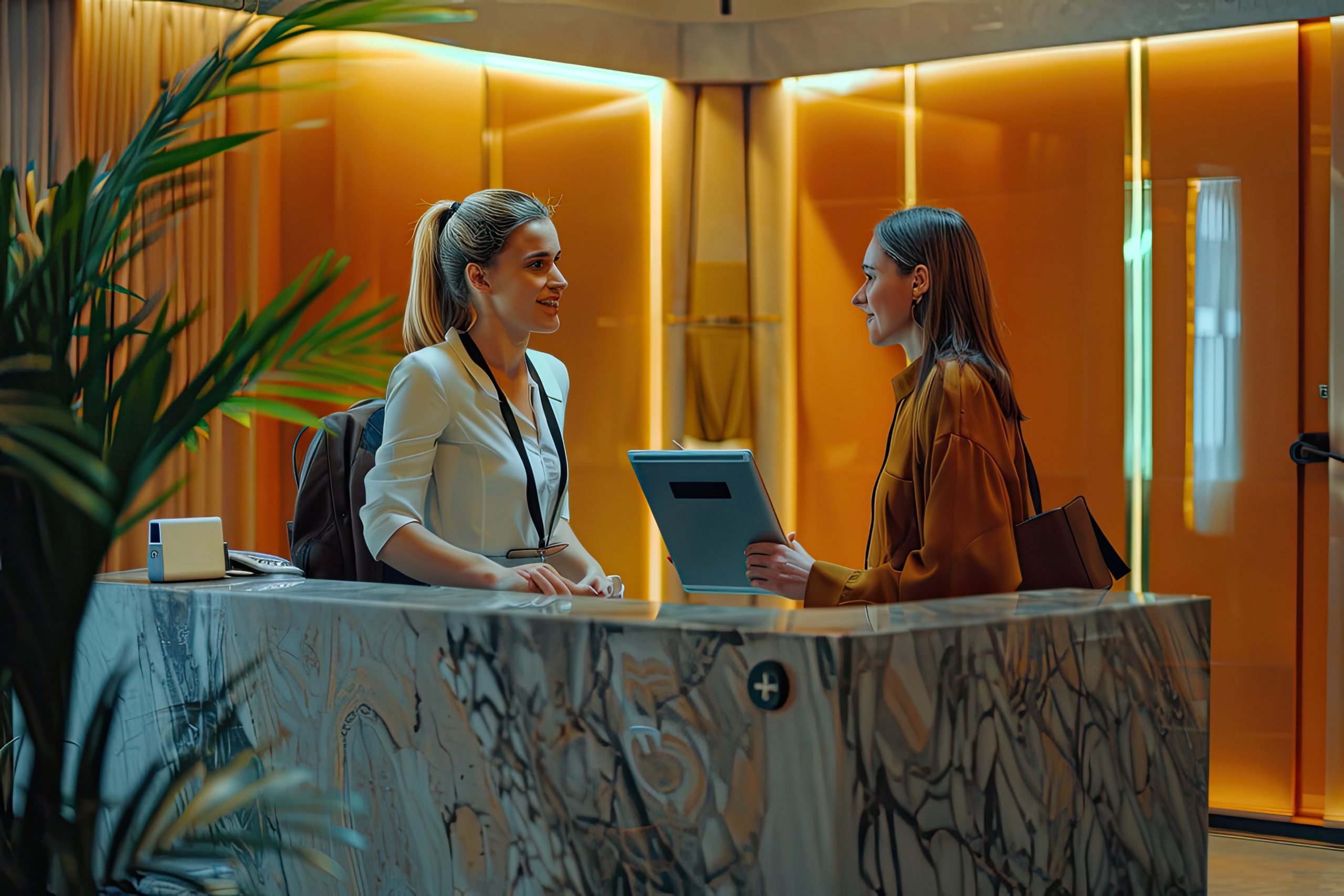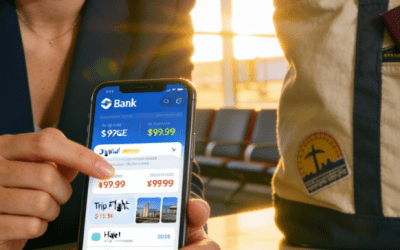In the tourism industry, upselling and cross-selling strategies are fundamental to maximizing revenue and enhancing the customer experience. These techniques allow hotels and travel agencies to offer additional services and products that enrich the traveler’s stay and increase profits. In this article, we will explore how to implement these strategies effectively, the benefits they bring, and some specific tactics to optimize their results.
What is Upselling and Cross-Selling?
Upselling is a sales strategy that involves offering the customer a superior or more expensive version of the product or service they have already decided to purchase. In the context of a hotel, this could mean offering a room with an ocean view instead of a standard one, or an accommodation package that includes breakfast.
On the other hand, cross-selling refers to the practice of suggesting complementary products or services to the customer that enhance their original experience. For example, a travel agency might offer the customer the option to add a local excursion or travel insurance to their flight and hotel reservation.
Effective Upselling and Cross-Selling Strategies
To implement effective upselling and cross-selling strategies in hotels and travel agencies, it is essential to have a good understanding of the available products and services, as well as the customers’ needs and preferences. Below are some of the most effective tactics that can be employed to maximize revenue and improve customer satisfaction.
Room Upgrades and Service Packages in Hotels
Offering room upgrades and service packages is one of the most effective ways of upselling in hotels. These options not only increase revenue but also enhance the guest’s experience. For example, a hotel can offer an upgrade from a standard room to a suite, or include a package with breakfast and dinner.
Exclusive Offers and Complementary Services
Providing exclusive offers and complementary services is key to cross-selling. This can range from local excursions to wellness services like spa treatments or yoga classes. Offering discounts at the hotel restaurant or bar can incentivize guests to use these services.
All-Inclusive Packages and Travel Insurance in Travel Agencies
Travel agencies can leverage upselling by offering all-inclusive packages and travel insurance. These packages offer convenience and peace of mind to travelers, increasing their perceived value and, consequently, the agency’s revenue. An all-inclusive package might include flights, accommodation, meals, and activities, making the trip more appealing to customers.
Excursions and Car Rentals
Promoting local excursions and car rental services is an excellent way to cross-sell in travel agencies. These options not only generate additional revenue but also enhance the customer experience by offering greater freedom and exploration options. A guided tour to a local attraction or a rental car for exploring the area can be tempting offers for travelers.

Benefits of Upselling and Cross-Selling in the Tourism Industry
Upselling and cross-selling strategies not only increase revenue but also provide a number of additional benefits that can improve customer relationships and competitive positioning in the market. Below are some of the main benefits that these strategies can offer to hotels and travel agencies.
Increased Revenue
One of the most obvious benefits of upselling and cross-selling strategies is increased revenue. By offering additional products and services, hotels and travel agencies can maximize the value of each customer. For example, a hotel that offers room upgrades can significantly increase its revenue per guest.
Enhanced Customer Experience
Offering additional options and personalized upgrades can elevate the customer experience, increasing their satisfaction and loyalty. Customers who enjoy an enriched experience are more likely to return and recommend the service to others. For example, offering an exclusive local excursion can transform a simple hotel stay into an unforgettable experience.
Competitive Differentiation
Well-executed upselling and cross-selling strategies can differentiate a hotel or travel agency from the competition. By offering unique and high-quality products and services, a distinctive value proposition can be created that attracts more customers. This is especially important in a highly competitive market like the tourism industry.
Optimization of Upselling and Cross-Selling Strategies
To maximize the impact of upselling and cross-selling strategies, it is crucial to continually optimize them. This involves using advanced technologies, training staff, and constantly evaluating results. Below are some best practices for optimizing these strategies in hotels and travel agencies.
Use of Technology
Technology plays a crucial role in optimizing upselling and cross-selling strategies. Tools such as Customer Relationship Management (CRM) systems, artificial intelligence, and data analytics can help identify customer preferences and needs, enabling personalized and timely offers.
Customer Relationship Management (CRM) Systems
CRM systems allow hotels and travel agencies to collect and analyze detailed data on customer preferences and behaviors. This information can be used to create detailed customer profiles and offer personalized recommendations that increase the likelihood of upselling and cross-selling. Additionally, a well-implemented CRM system facilitates continuous communication with customers, keeping them informed about special offers and additional services that might interest them.
Artificial Intelligence and Data Analytics
Artificial intelligence and data analytics allow companies to predict customers’ needs and desires before they even know them themselves. For example, if a guest has previously booked a standard room and shown interest in wellness services, the system can automatically suggest an upgrade to a room with spa access on their next visit. AI algorithms can analyze large volumes of data to identify patterns and trends, allowing companies to anticipate market demands and adapt their upselling and cross-selling strategies accordingly.
Staff Training
Sales and customer service staff must be well-trained to identify upselling and cross-selling opportunities. This includes communication skills, deep knowledge of products and services, and effective persuasion techniques.
Communication Skills
Effective communication is key to upselling and cross-selling. Staff must be able to present additional options attractively and relevantly to the customer. This involves not only knowing the products and services well but also knowing how to highlight their specific benefits for each customer. Empathy and the ability to listen actively are essential skills to understand customers’ true needs and desires and offer solutions that genuinely enhance their experience.
Product and Service Knowledge
Staff must have deep knowledge of all available products and services to offer precise and useful recommendations. This includes knowing the details of each option as well as the typical needs and preferences of customers. Additionally, continuous training is crucial to keep staff updated on new offers and changes in products and services, ensuring they can always provide the best possible information to customers.
Continuous Evaluation
It is important to continuously evaluate the success of upselling and cross-selling strategies by analyzing key metrics such as the increase in revenue per customer, conversion rate, and customer satisfaction. This evaluation allows for adjustments and improvements to the tactics employed.
Key Metrics Analysis
Analyzing key metrics allows hotels and travel agencies to understand which strategies are working and which need adjustments. For example, if an upselling tactic is not generating the expected increase in revenue, it may be necessary to reevaluate how the option is presented or to whom it is targeted. Key metrics include:
- Revenue per customer: Monitoring revenue generated per customer allows for evaluating the direct impact of upselling and cross-selling strategies.
- Conversion rate: Measuring the conversion rate of additional offers helps determine the effectiveness of the tactics employed.
- Customer satisfaction: Evaluating customer satisfaction through surveys and feedback can provide valuable insights into how additional offers are perceived.
Customer Feedback
Customer feedback is essential for continuous improvement. Listening to customers’ opinions on upselling and cross-selling options can provide valuable ideas on how to make these strategies more effective. Feedback can be collected through surveys, interviews, and analysis of online reviews. Using this information to make adjustments and adapt strategies to the changing needs of customers is crucial to remain competitive and relevant in the market.

Upselling and cross-selling strategies are powerful tools in the tourism industry that, when implemented correctly, can maximize revenue and enhance the customer experience. By focusing on offering additional value and personalization, hotels and travel agencies can differentiate themselves from the competition and build lasting relationships with their customers. The key lies in the combination of advanced technology, adequate staff training, and continuous evaluation to adapt and improve these tactics.






